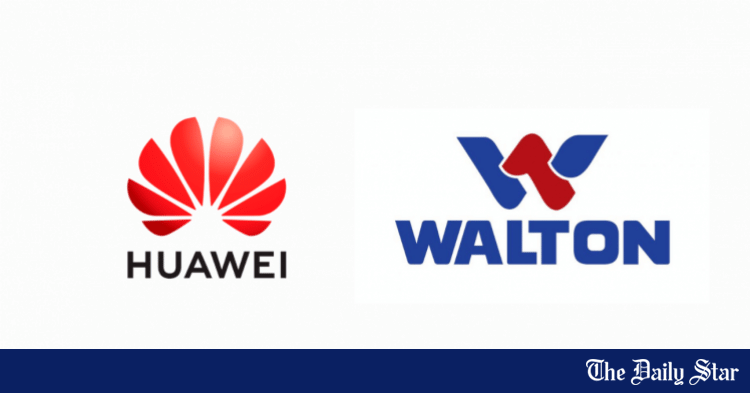Huawei and Walton team up to produce lithium batteries for mobile towers
Under this collaboration, Walton will manufacture telecommunication lithium batteries aiming for a market launch within 2025.
Huawei, the Chinese tech conglomerate, and Walton, a Bangladeshi conglomerate, have announced a strategic partnership to produce lithium batteries for telecom base transceiver stations (BTS) in Bangladesh. The agreement was formalised at the Huawei Bangladesh Academy in Dhaka on Thursday, with Pan Junfeng, CEO of Huawei Bangladesh, and S M Rezaul Alam, Chairman of Walton Digi-Tech Industries Ltd., signing the contract.
Under this collaboration, Walton will manufacture telecommunication lithium batteries aiming for a market launch within 2025. With an automated production line capable of producing 80,000 units annually, Walton will manage the nationwide sales and after-sales services, while Huawei provides the technical expertise, design support, raw materials, and guidance for the manufacturing process.
According to a press release, the current Bangladeshi market still relies heavily on non-intelligent, low-quality lithium batteries, which pose challenges such as shorter lifespans and the inability to be managed by the Network Management System (NMS). These batteries are also prone to theft, often leading to unplanned network outages and service disruptions. The new high-quality, intelligent batteries produced through this partnership will address these concerns, enhancing operational efficiency, reducing costs, and improving overall network reliability. Moreover, this shift will also reduce carbon emissions, promoting a more green energy solution.
"Lithium battery manufacturing plant will ease the dependency on the current lead acid batteries for telecom industry in Bangladesh which will significantly improve the overall carbon emission," said S M Monjurul Alam Ovee, Managing Director of Walton Digi-Tech Industries Ltd.
Huawei's CEO Pan Junfeng said, "Huawei's lithium batteries serve more than 340 operators in over 170 countries, making up one-third of the global telecom energy field. In the Asia-Pacific region, Huawei's lithium battery market share is 35%."
China's Ambassador to Bangladesh, H.E. Yao Wen said, "At present, a new era of energy revolution is ascending globally. Renewable energy sources such as solar photovoltaic and wind power are replacing traditional fossil energy. Energy storage technology represented by lithium power is crucial to ensure future development."





